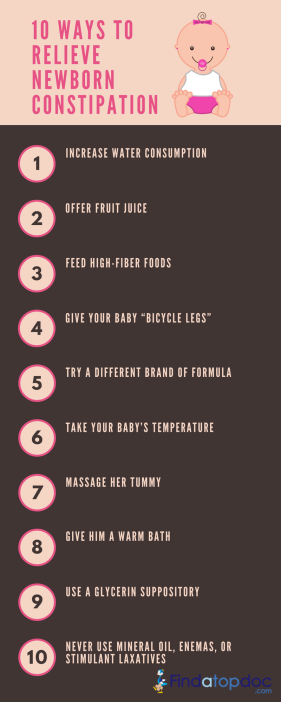
Source
Causes
Although it's rare for a baby on an all-liquid diet to experience constipation, it can happen. Exclusively formula-fed babies are much more likely to have trouble from constipation. Formula can firm up poop much more than breast milk can. If your baby has a milk-protein allergy or intolerance, she could end up constipated. A milk-based formula could cause this, as well as the dairy in mom's diet that's passed through the breast milk. This also carries over to any other kinds of dairy an older baby could consume, such as yogurt and cheese.
When a baby is around 6 months, pediatricians often give parents the green light to offer a variety of baby food. What your baby eats will largely determine the kind of poop you can expect. And many different foods could contribute to constipation. Start by considering your ABCs -- applesauce, bananas, and cereal. Too much of any of these, especially rice cereal, can get you into trouble.